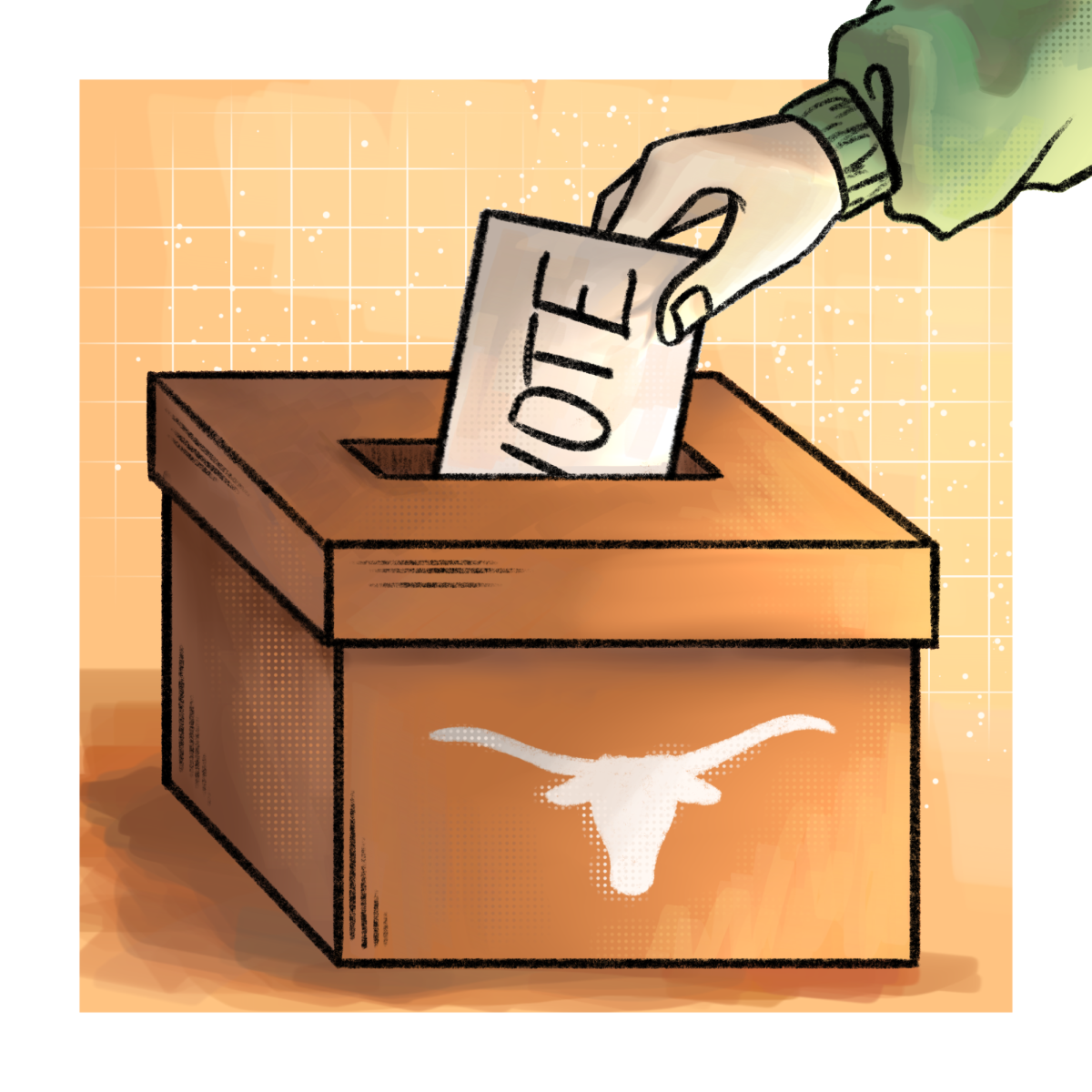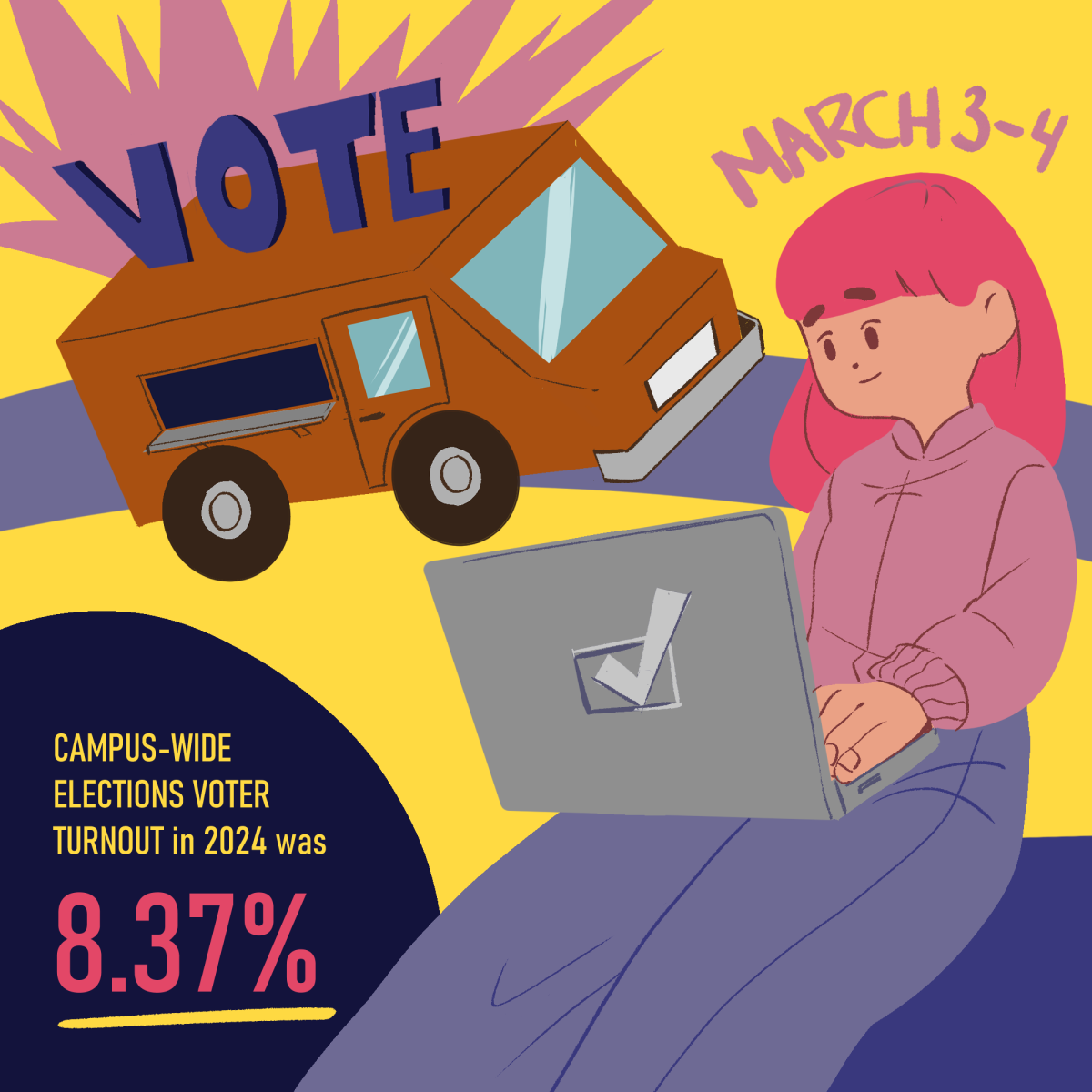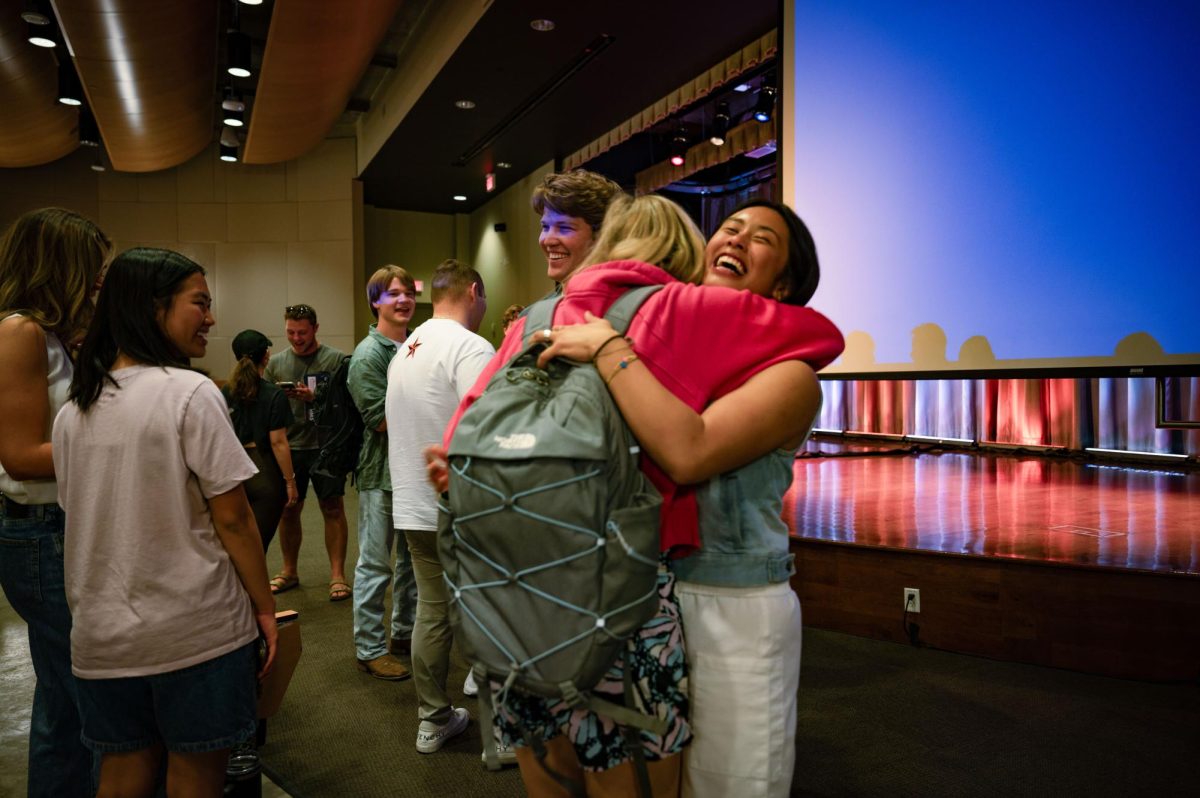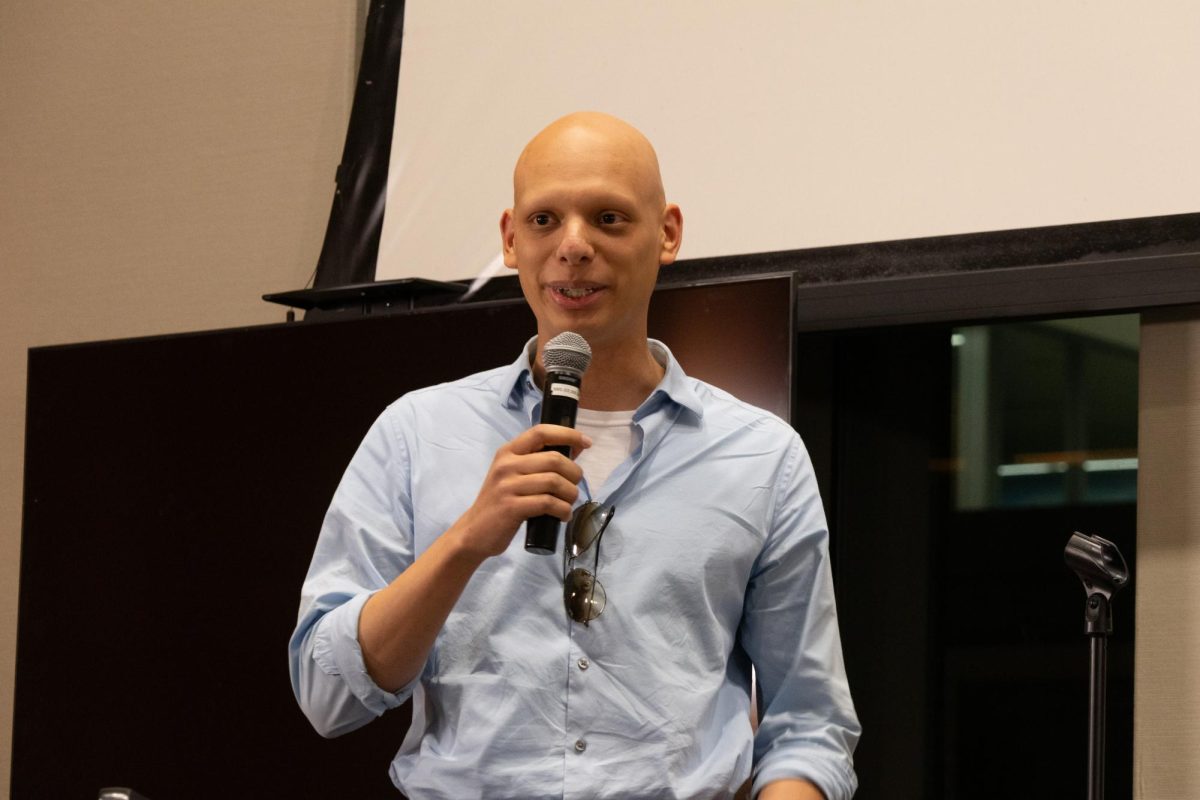Students can begin voting on Monday for the executive alliance they would like to represent them in Student Government for the 2024-2025 academic year.
Voting opens 8 a.m. on Monday Feb. 26 and ends at 5 p.m. on Tuesday Feb. 27. Students can vote at utexasvote.org. The alliances are management Ramya Nambala, information systems, politics, philosophy and public policy and business honors sophomore, and international business sophomore Jonathan Wilson; Austin Barthel, a geosystems engineering and hydrology junior, government sophomore Andrew McKiernan; and Grace Kelly, Plan II Honors and human development and family sciences junior, and journalism junior Elle Grinnell; and finance junior Jonathan Griffith and Kore Sarfo, an arts and entertainment technologies junior.
At the debate Monday night, candidates exchanged their plans for Student Government regarding mental health, food insecurity and DEI in light of Senate Bill 17.
Ramya Nambala and Jonathan Wilson: Solving Real Problems for Real Students
Nambala and Wilson’s platform centers around SB 17-compliant DEI initiatives, combating food insecurity and increasing transparency between Student Government and the campus community.
In their policy paper, Nambala and Wilson said they plan to reinstate cultural recruitment dinners and organize non-UT speaker seminars to continue DEI initiatives.
To fight food insecurity, Nambala and Wilson plan to partner with Swipe Out Hunger, a nonprofit that combats hunger among college students, to reallocate unused meal swipes to food-insecure students. They also plan on collaborating with student organization West Campus Collective to eliminate “food deserts” on campus, the policy paper said.
To increase connectivity between their alliance and the student body, Nambala and Wilson plan to convert the Multicultural Engagement Center, which closed in January due to SB 17, into a Student Engagement Center where students can connect with SG and alumni.
Austin Barthel and Andrew McKiernan: Remaking Student Government
Barthel and McKiernan’s plans focus on restructuring the Student Government budget, making UT safer for students as violence continues in Israel and Palestine and improving free speech on campus.
Barthel and McKiernan proposed limiting funding for SG agencies to $3,000 each and cutting the amount of money allocated to special projects and operations in favor of a merit-based scholarship fund for students in need. They said in their Daily Texan column they would make SG budgets public to ensure the organization and its agencies spend their money responsibly.
The pair said in the debate they would create a “task force” to help Muslim and Jewish students feel safer on campus as Islamophobia and antisemitism rise due to bloodshed in the Middle East.
Grace Kelly and Gabrielle “Elle” Grinnell: Unite Together
Kelly and Grinnell’s platform focuses on improving mental health resources on campus, fostering a more inclusive campus environment and combating food insecurity.
In their mental health policy paper, Kelly and Grinnell said they would introduce and fund long-term counseling through the Counseling and Mental Health Center. The CMHC currently only offers short-term counseling for six sessions, after which students would have to find an off-campus counselor, a process Kelly and Grinnell said creates anxiety and additional costs for students.
In light of SB 17, Kelly and Grinnell said in their “Cultivating Equality” policy paper they plan to set aside money for “student-led initiatives” that promote diversity, equity and inclusion. They said they would also host interactive town halls every month, where any student or faculty member can voice their concerns to the alliance.
Jonathan Griffith and Lemuel “Kore” Sarfo
Griffith and Sarfo’s platform focuses on connecting the student body to UTSG. In their candidate statement, they noted that less than 10% of the student body votes in all-campus elections. They hope to bridge that gap and amplify student voices, according to their statement.













